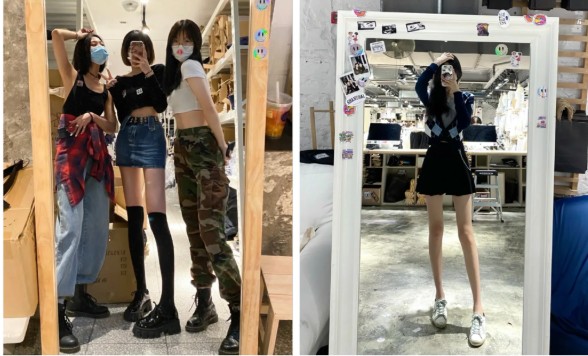Too Thin to Belong: Chinese Women Abroad Face a New Global Beauty Standard
Chinese girls who come to study in Britain or the United States quickly shed the old trend of avoiding the sun and stop carrying umbrellas. Yet a deeper problem emerges: beyond the ultra-thin ideal in China, a new standard awaits in the West. Western dating culture often prizes curves and an hourglass figure, and women who are seen as too thin or flat can be labeled as unfeminine or boyish. Within a year of embracing their natural appearance abroad, some begin editing their photos again to look more voluptuous, chasing a Kardashian‑style silhouette. This is a reminder that beauty norms are not simply swapped; they are contested across borders.

In This Article:
Freedom at First, Then a New Pressure
Arriving abroad, many Chinese students feel a relief from the intense beauty constraints at home. The freedom to be themselves is intoxicating. But soon they encounter a different standard: Western men and culture tend to prefer fuller, more sculpted bodies. The pressure to conform to this ideal can feel as controlling as the one they left behind, transforming liberation into a new form of conformity.
From Meitu to Reality: Editing for Western Curves
In China, popular apps like Meitu let users elongate legs, slim the face, and smooth pores—tailored to local tastes. Abroad, the same impulse mutates. After adjusting to Western expectations, many students admit they retouch their photos to emphasize hips and lips, aiming for a Kardashian‑style hourglass. The move isn’t just about vanity; it’s about negotiating two powerful, conflicting beauty ideals across cultures.
Foreign Gaze, New Demands: 'Do You Eat?' and the Kardashian Ideal
Some Chinese students report blunt questions from white men: “Do you eat every day? Why are you so thin? What do you eat?” In response, many return to retouching, extending legs, widening hips, and enlarging chests. A student reflects, “Chinese men think I’m not slim enough, but by Western standards my body is thin and unhealthy.” The more celebrated one is back home for extreme thinness, the harder it is to be taken seriously in Britain.
Two Worlds, One Body: The Paradoxes of Global Beauty
Escaping one set of rigid norms often leads to another, just as harsh. In Britain, extreme thinness can be seen as unhealthy or unfeminine, while the global fashion of an hourglass silhouette remains dominant. The piece briefly touches a troubling idea—some may consider darkening their skin to fit standards in other cultures. This is harmful and unacceptable, a reminder that beauty is not a contest but a conversation about health, dignity, and representation. The discussion ends with a call to reflect and share perspectives.

